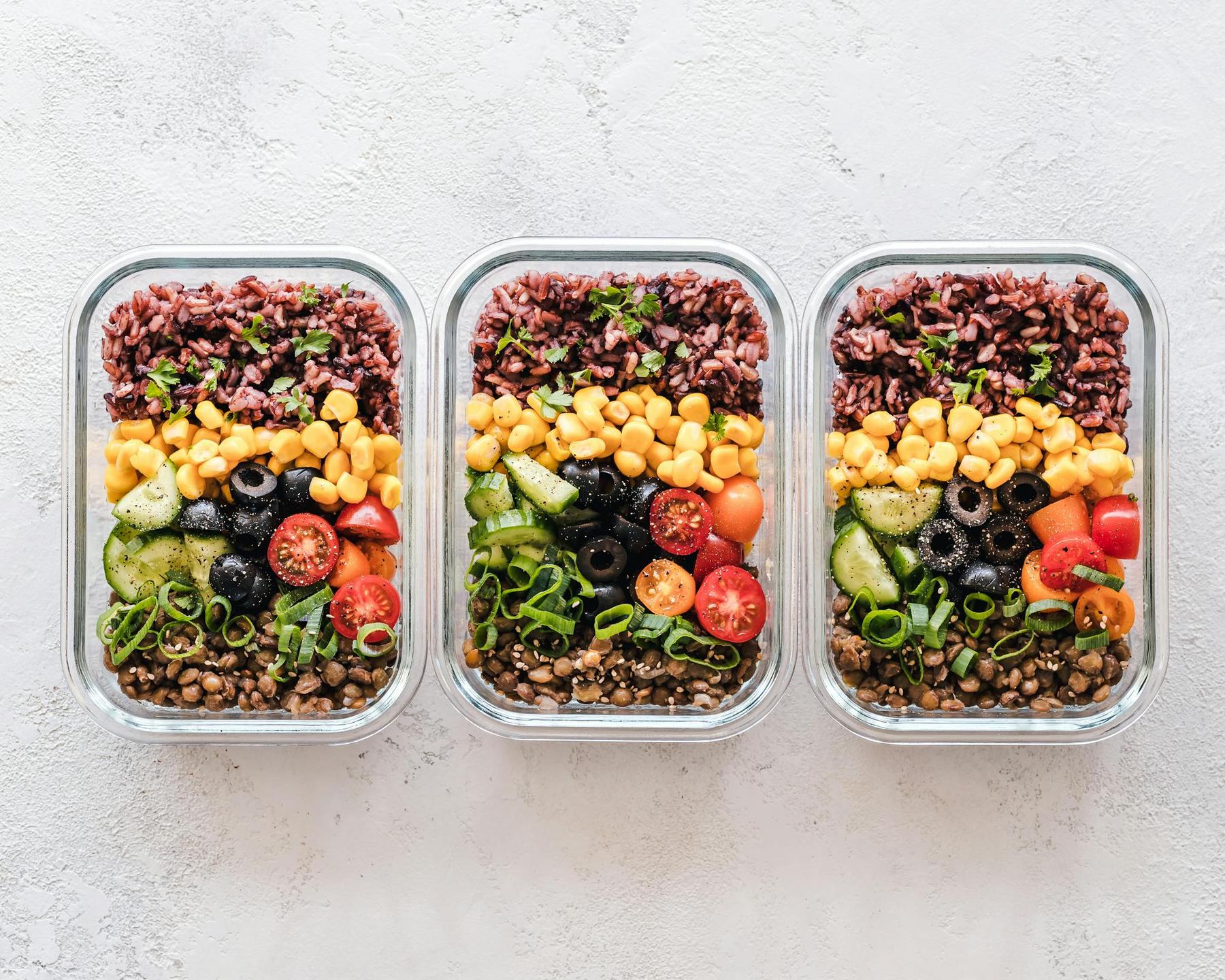The familiar cycle begins every Friday afternoon: weekend plans unfold with promises of relaxation, social gatherings, and well-deserved treats. By Monday morning, the scales tell a different story, and regret sets in as another weekend derails carefully maintained weekday progress. Research reveals that weekend eating behaviours represent one of the most significant barriers to sustainable weight management, with the average person consuming an additional 115 calories per day during weekends—a seemingly modest increase that translates to approximately 2.3 kilograms of weight gain annually if left unchecked.
The weekend weight struggle extends far beyond simple willpower failures. Scientific evidence demonstrates that our bodies follow predictable weekly rhythms, with weight typically peaking on Sunday and Monday mornings before gradually decreasing throughout the week. Yet those who successfully manage these fluctuations share a common trait: they’ve developed evidence-based strategies for healthy weekends that prevent Monday regrets whilst maintaining the social connections and personal enjoyment that make weekends valuable for overall wellbeing.
Understanding how to navigate weekend challenges whilst preventing Monday regrets requires a comprehensive approach that addresses both the physiological and psychological factors driving weekend overconsumption. The solution lies not in eliminating weekend pleasure but in developing sustainable strategies that support both immediate satisfaction and long-term health goals.
Why Do Weekends Sabotage Your Health Goals?
Weekend eating patterns follow remarkably predictable scientific patterns that extend far beyond individual willpower or dietary discipline. Research demonstrates that Saturday caloric intake averages 2,257 calories compared to 2,021 calories during weekdays—a difference of 236 calories that compounds over time. This increased consumption stems primarily from elevated fat intake, which comprises 36.5% of total weekend calories versus 34.7% during weekdays, alongside relative decreases in protein consumption when healthy weekends become difficult to maintain.
The physiological impact of these weekend patterns becomes particularly pronounced when examined within the context of structured weight management efforts. Studies involving participants in calorie restriction and exercise programmes revealed that weekend indulgences significantly undermined their progress, with those following calorie restriction ceasing to lose weight on weekends whilst exercise group participants actually gained weight during weekend periods. This occurred despite active engagement in supervised weight loss programmes, highlighting the powerful influence of weekend lifestyle changes on metabolic outcomes.
| Eating Pattern Comparison | Weekdays | Weekends | Impact |
|---|---|---|---|
| Average Daily Calories | 2,021 | 2,257 | +236 calories |
| Fat Percentage of Total Calories | 34.7% | 36.5% | +1.8% increase |
| Weekly Weight Pattern | Gradual decrease | Peak on Sunday/Monday | 2-8 pound fluctuation |
| Annual Weight Impact | Baseline | +115 calories/day average | +2.3kg potential gain |
The hormonal disruption caused by weekend eating patterns involves complex interactions between circadian rhythms, stress responses, and social eating behaviours. Weekend periods typically involve disrupted sleep schedules, increased alcohol consumption, and social gatherings that encourage overconsumption—all factors that affect hunger hormones like leptin and ghrelin. Sleep disruption, common during weekends due to altered schedules, leads to decreased leptin levels and increased appetite, making individuals more susceptible to overconsumption precisely when environmental temptations are greatest.
Weekend alcohol consumption presents additional challenges beyond empty calories, as alcohol lowers inhibitions and stimulates appetite whilst disrupting normal satiety signals. Research indicates that people consistently eat more following alcohol consumption, creating a compounding effect where both the alcoholic beverages and subsequent food choices contribute to weekend weight gain. This biological reality explains why even moderate weekend drinking can significantly impact weekly caloric balance and long-term weight management success.
What Drives Weekend Overeating Patterns?
The psychological mechanisms underlying weekend overeating extend far beyond simple dietary choices to encompass complex reward-seeking behaviours, social conditioning, and stress management strategies that operate largely outside conscious awareness. The “reward mentality” represents one of the most pervasive psychological drivers, with individuals viewing weekends as earned opportunities to “treat themselves” after maintaining dietary discipline throughout the week. This mindset creates a problematic binary relationship with food, where weekdays represent restriction and deprivation whilst weekends become associated with freedom and indulgence.
Social conditioning plays a crucial role in perpetuating weekend eating patterns, as cultural norms consistently associate weekends with celebration, relaxation, and food-centred activities. Weekend social gatherings, restaurant meals, and family celebrations typically involve high-calorie foods and drinks, creating environmental pressures that can override individual dietary intentions. The mere presence of social eating situations increases caloric intake, particularly when combined with alcohol consumption and celebratory atmospheres that encourage healthy weekends to become forgotten commitments.
The psychological concept of cognitive restraint versus disinhibition becomes particularly relevant in weekend contexts, where the structured routines supporting healthy weekday eating disappear. During weekdays, predictable schedules, work responsibilities, and established meal timing create natural boundaries that support dietary control. Weekends introduce unpredictability, extended leisure time, and reduced external structure, creating conditions where impulsive food choices become increasingly likely and preventing Monday regrets becomes more challenging.
Emotional eating patterns intensify during weekends as individuals use food to manage stress, boredom, or other emotional states that become more prominent during unstructured time. The end of a stressful work week can trigger compensatory behaviours, with food serving as readily available comfort and reward. Weekend eating may function as self-medication for work-related stress, relationship challenges, or other life pressures that accumulate throughout the week. The convenience and immediate gratification provided by food make it an attractive option for emotion regulation, particularly when healthier coping strategies require more time, effort, or planning.
The “all-or-nothing” mentality represents a significant psychological barrier to healthy weekends, with many individuals operating under the belief that they must maintain either perfect dietary control or completely abandon their health goals. This cognitive distortion creates a false binary leaving no room for moderate indulgence or flexible approaches to weekend eating. When individuals believe they’ve “blown” their diet with a single indulgent meal, they may abandon all dietary restraint for the remainder of the weekend, leading to significantly greater overconsumption than would occur with more balanced approaches.
How Can You Break the Weekend Diet Trap?
Breaking free from the weekend diet trap requires fundamental shifts in both mindset and practical strategies, moving away from rigid restriction-indulgence cycles toward sustainable approaches to dietary flexibility. The weekend diet trap operates through psychological mechanisms involving reward and restriction cycles that intensify cravings and promote overconsumption. When individuals maintain overly restrictive eating patterns during weekdays, their bodies and minds anticipate weekend “freedom,” creating psychological pressure that leads to more extreme indulgences than would occur under flexible approaches.
The restriction-binge cycle operates on both physiological and psychological levels, with caloric deprivation triggering biological drives for energy-dense foods whilst psychological deprivation creates emotional urgency around forbidden foods. This combination makes moderate consumption virtually impossible once weekend “permission” periods begin, creating the very outcomes that healthy weekends and preventing Monday regrets strategies aim to avoid.
Research supports the effectiveness of strategies allowing consistent moderate indulgences throughout the week rather than complete restriction followed by weekend excess. The “80/20 approach” permits individuals to enjoy less nutritious foods approximately 20% of the time whilst maintaining healthy choices 80% of the time, distributed evenly across all days. By eliminating artificial distinctions between weekdays and weekends, individuals can satisfy cravings without triggering psychological urgency that drives overconsumption.
The development of dietary consistency across all seven days represents a crucial component of escaping the weekend diet trap. This involves creating what researchers term “dietary consistency,” where the same general principles guide food choices throughout the week, with natural variation based on appetite, social situations, and personal preferences. Successful long-term weight management correlates strongly with dietary consistency between weekdays and weekends, with individuals showing the smallest differences in eating patterns demonstrating the most successful weight maintenance over time.
Social and environmental factors characterising weekend periods create additional challenges for maintaining dietary consistency, with restaurant meals, social gatherings, and family celebrations providing numerous overconsumption opportunities. Weekend dining experiences often involve larger portion sizes, higher-calorie preparations, and social pressure to participate fully in food-centred activities. Unlike weekday eating, which typically occurs in controlled environments with predetermined choices, weekend eating involves spontaneous decisions in high-stimulation environments designed to promote consumption.
The physiological impact of weekend diet cycles extends beyond simple weight fluctuations to include disruptions in metabolic function, hunger hormone regulation, and energy utilisation patterns. When individuals alternate between restriction and excess periods, their bodies struggle to maintain consistent metabolic processes, leading to decreased metabolic efficiency and increased fat storage. The body interprets alternating restriction and abundance as environmental instability, triggering protective mechanisms that promote energy conservation and fat accumulation, making healthy weekends increasingly difficult to maintain.
Which Evidence-Based Strategies Work for Weekend Success?
Evidence-based approaches to healthy weekends require integration of research findings from nutrition science, behavioural psychology, and circadian biology to develop comprehensive strategies addressing both physiological and psychological factors influencing weekend eating patterns. The most effective interventions focus on creating structure within flexibility, allowing individuals to maintain health goals whilst accommodating social and recreational aspects that make weekends enjoyable and sustainable for preventing Monday regrets.
Meal planning and preparation emerge among the most powerful evidence-based strategies for weekend success, with studies showing significant improvements in dietary quality and weight management when individuals engage in systematic weekend meal preparation. The process involves dedicated time for planning upcoming meals, purchasing necessary ingredients, and preparing components that can be quickly assembled during busy periods. Research indicates that individuals engaging in regular meal planning consume more fruits and vegetables, have better overall diet quality, and rely less on processed convenience foods.
Strategic approaches to weekend social eating represent crucial components of evidence-based weekend wellness, involving preparation techniques and mindful decision-making strategies that allow social participation without complete dietary abandonment. Research on restaurant eating interventions demonstrates that individuals can significantly reduce caloric intake whilst dining out through strategies such as reviewing menus in advance, eating small protein-rich snacks before leaving home, and making conscious choices about which indulgences matter most. A randomised controlled trial of “Mindful Restaurant Eating” intervention showed participants lost an average of 1.7 kilograms over six weeks whilst continuing regular restaurant dining.
Physical activity integration during weekends provides both immediate and long-term benefits for weight management and overall wellness, with research showing that weekend exercise helps offset some metabolic impacts of increased caloric intake. Studies indicate that individuals maintaining active weekend lifestyles experience smaller weight fluctuations and better long-term weight management outcomes compared to those becoming sedentary during leisure periods. Weekend physical activity also provides mental health benefits, including stress reduction and improved mood, which decrease emotional eating likelihood.
Alcohol management strategies represent critical but often overlooked components of healthy weekends, as alcoholic beverages contribute significant calories whilst lowering inhibitions around food choices. Evidence-based strategies include alternating alcoholic drinks with water, choosing lower-calorie options such as wine spritzers, and setting specific limits before attending social events. Social aspects of drinking can be maintained whilst reducing caloric impact through conscious choice-making and strategic planning that supports preventing Monday regrets.
Sleep optimisation during weekends provides foundational support for healthy eating patterns, with research consistently demonstrating strong connections between sleep quality and weight management success. Studies show inadequate sleep disrupts hunger hormones, increases cravings for high-calorie foods, and reduces the ability to make conscious dietary choices. Weekend sleep strategies include maintaining consistent bedtime routines, limiting late-night eating, and using weekends to address sleep debt accumulated during work weeks whilst maintaining reasonable schedule consistency.
How Does Mindful Eating Transform Weekend Choices?
Mindful eating practices represent scientifically-validated approaches to improving dietary behaviours and weight management outcomes, with particular relevance for weekend eating situations where social pressures and environmental distractions can override normal hunger and satiety cues. Research defines mindful eating as paying attention to food-related experiences with curiosity, acceptance, and awareness, engaging all senses whilst acknowledging responses, feelings, and physical cues such as hunger and fullness. Studies demonstrate that mindful eating interventions lead to significant improvements in eating behaviours, weight management, and psychological wellbeing, particularly where traditional dietary restriction approaches have failed.
The neurobiological mechanisms underlying mindful eating involve enhanced communication between brain and digestive system, allowing individuals to recognise and respond appropriately to hunger and satiety signals often disrupted through habitual or emotional eating patterns. Research shows approximately 20 minutes are required for satiety signals to travel from stomach to brain, meaning rapid eating can lead to overconsumption before fullness is recognised. Mindful eating practices specifically address this timing issue by encouraging slower eating pace, thorough chewing, and regular hunger and fullness check-ins throughout meals.
Mindful check-ins before and during eating represent fundamental components of successful weekend eating management, involving brief awareness moments that distinguish between physical hunger and emotional or social eating triggers. Research-based mindful eating protocols recommend taking several deep breaths before eating and briefly scanning the body for genuine hunger cues, emotional states, and stress or anxiety that might influence food choices. This practice becomes particularly valuable during weekend social situations where external pressures and distractions can override internal awareness of nutritional needs versus social or emotional eating desires.
Sensory engagement techniques form crucial aspects of mindful eating practice, involving deliberate attention to taste, texture, aroma, and visual appearance of foods as means of enhancing satisfaction and preventing overconsumption. Research indicates that when individuals pay full attention to eating experiences, they require smaller food quantities to feel satisfied and are less likely to continue eating past fullness points. Weekend eating situations often involve particularly appealing foods that can be fully appreciated through sensory engagement, allowing individuals to derive maximum pleasure from moderate portions rather than consuming large quantities without awareness.
Elimination of distractions during eating emerges as critical components of mindful eating practice, with research consistently showing that distracted eating leads to increased consumption and reduced meal satisfaction. Common weekend distractions include television, smartphones, computer screens, and intense social conversations, all preventing awareness of hunger and fullness cues whilst promoting mindless consumption. Studies demonstrate that individuals eating whilst watching television consume significantly more calories and report lower meal satisfaction compared to those eating without distractions, making healthy weekends more challenging to maintain.
Mindful eating applications for restaurant and social eating situations require adapted techniques implementable in challenging environments whilst maintaining social engagement and enjoyment. Research on mindful restaurant eating interventions shows participants successfully reduced caloric intake whilst dining out through strategies such as appreciating food presentation before eating, chewing more slowly and thoroughly, and periodically checking hunger and fullness levels throughout meals. These practices can be implemented subtly without drawing attention or interfering with social interactions, making them practical for real-world weekend situations whilst supporting preventing Monday regrets goals.
What Role Does Professional Support Play in Weekend Weight Management?
The integration of technology and professional support systems represents a rapidly evolving frontier in weekend weight management, with telehealth services providing unprecedented access to expert guidance and accountability during periods when individuals most likely struggle with maintaining healthy behaviours. Research demonstrates that technology-mediated interventions can be particularly effective for weight management, with studies showing participants using videoconferencing and digital support tools achieved greater weight loss compared to those receiving traditional in-person services alone.
Telehealth weight management programmes offer unique advantages for addressing weekend-specific challenges, providing real-time access to registered dietitians, health coaches, and medical professionals who offer guidance during critical decision-making moments. Research on telehealth effectiveness shows patients can achieve significant weight loss outcomes, with studies demonstrating 5.1% body weight reduction among participants, along with continued improvements at follow-up visits. The ability to connect with healthcare providers from home eliminates geographical barriers and scheduling constraints that might otherwise prevent accessing support when most needed for healthy weekends.
The psychological benefits of continuous professional support extend beyond simple dietary guidance to include accountability, motivation, and expert problem-solving assistance during challenging weekend situations. Research indicates that regular monitoring and accountability represent key factors in successful long-term weight management, with individuals maintaining regular healthcare provider contact achieving better outcomes than those attempting independent weight management. Weekend periods often present unique challenges benefiting from professional perspective, such as navigating social eating situations, managing emotional triggers, or adapting strategies for travel and altered routines.
Digital tracking and monitoring technologies provide valuable data for both individuals and healthcare providers, enabling evidence-based adjustments to weekend strategies and early identification of problematic patterns. Research shows self-monitoring behaviours, including food tracking and weight monitoring, correlate strongly with successful weight management outcomes. Weekend monitoring can reveal patterns not apparent to individuals, such as gradual portion size increases, restaurant meal frequency, or correlations between specific social situations and overeating episodes, supporting preventing Monday regrets through data-driven insights.
The convenience and flexibility of telehealth services specifically address barriers preventing individuals from accessing support during weekend periods, including time constraints, transportation issues, and scheduling conflicts with social or family commitments. Research indicates telehealth appointments can be scheduled more flexibly than traditional in-person visits, with extended hours and weekend availability accommodating diverse lifestyle needs. This flexibility becomes particularly valuable for individuals with busy schedules, family obligations, or work responsibilities making traditional office visits challenging.
Virtual support groups and online communities provide additional support layers particularly valuable during weekend periods when social pressures and challenges intensify. Research on peer support in weight management shows individuals participating in supportive communities achieve better long-term outcomes compared to those attempting weight management in isolation. Online communities provide 24/7 access to others facing similar challenges, offering encouragement, practical tips, and accountability extending beyond professional healthcare relationships whilst supporting healthy weekends.
Real-time crisis intervention capabilities represent often-overlooked but potentially crucial aspects of telehealth support for weekend weight management, providing immediate assistance during high temptation moments or emotional distress that might otherwise lead to significant dietary setbacks. Research indicates that access to immediate professional support during critical moments can prevent problematic behaviour escalation and provide alternative coping strategies in real-time.
Building Your Weekend Wellness Foundation
Creating sustainable healthy weekends requires moving beyond temporary fixes toward comprehensive lifestyle integration recognising weekends as integral components of overall health rather than temporary departures from healthy living. The most successful approaches involve developing consistent lifestyle patterns maintainable across all week days, with natural variation based on personal preferences, social situations, and changing life circumstances. This eliminates artificial distinctions between weekday discipline and weekend freedom, creating more sustainable and psychologically healthy relationships with food and lifestyle choices whilst effectively preventing Monday regrets.
The development of intrinsic motivation for healthy behaviours represents fundamental components of sustainable lifestyle integration, with research showing individuals engaging in healthy behaviours for internal reasons such as energy, mood, and overall wellbeing maintain these behaviours more consistently than those motivated primarily by external factors. Weekend periods often provide opportunities for individuals to experience direct benefits of healthy choices, such as improved energy for recreational activities, better sleep quality, enhanced mood, and greater physical comfort. These positive experiences reinforce intrinsic motivation and make healthy choices more appealing rather than feeling like sacrifices.
Flexible consistency represents crucial concepts in sustainable weekend wellness, involving maintenance of core healthy principles whilst allowing natural variation in specific behaviours based on changing circumstances and personal preferences. Research indicates rigid adherence to specific dietary rules often leads to eventual healthy behaviour abandonment, whilst flexible approaches maintaining consistent underlying principles achieve better long-term outcomes. Weekend flexible consistency might involve maintaining regular meal timing whilst varying specific food choices, prioritising nutrient density whilst allowing occasional indulgences, or maintaining physical activity habits whilst adapting specific activities to match weekend opportunities.
Long-term perspective development helps individuals maintain healthy behaviours during weekends by viewing temporary indulgences or challenges within overall lifestyle pattern contexts rather than as failures or reasons to abandon health goals entirely. Research on successful weight maintenance shows individuals taking long-term perspectives are less likely to be derailed by short-term setbacks and more likely to return quickly to healthy behaviours after temporary deviations. Weekend wellness from long-term perspectives recognises that occasional overconsumption or missed exercise sessions represent normal parts of healthy lifestyles rather than evidence of failure.
The integration of comprehensive support systems, including professional guidance through telehealth services, provides crucial foundations for sustainable weekend wellness that extends beyond individual willpower or motivation. Access to registered dietitians, health coaches, and medical professionals during challenging weekend periods transforms weight management from solitary struggles into collaborative efforts with expert resources available when most needed. This professional support becomes particularly valuable during weekend periods when traditional healthcare offices are closed but individuals face their most challenging dietary decisions, making healthy weekends more achievable and preventing Monday regrets more realistic.
How much weight gain is normal during weekends?
Research indicates that weight typically fluctuates 2-8 pounds throughout the week, with peaks occurring on Sunday and Monday mornings. This represents normal physiological variation rather than true fat gain. However, consistent weekend overconsumption averaging 115 extra calories daily can lead to approximately 2.3 kilograms annual weight gain if patterns aren’t addressed.
Can I still lose weight if I indulge on weekends?
Yes, weight loss remains possible with weekend indulgences if you maintain overall weekly caloric balance and demonstrate compensation patterns during weekdays. Successful weight managers balance weekend increases with weekday moderation, ensuring that weekend excess does not negate weekday progress.
What’s the biggest mistake people make with weekend eating?
The most significant mistake involves the ‘all-or-nothing’ mentality, where individuals believe they must either maintain perfect dietary control or completely abandon their health goals. This false binary can lead to extreme overconsumption during weekends when moderate indulgence would be more sustainable.
How can telehealth services help with weekend weight management?
Telehealth services provide real-time access to registered dietitians, health coaches, and medical professionals during weekends when traditional healthcare offices are closed. They offer guidance, accountability, and crisis intervention capabilities, which are crucial for managing weekend eating challenges.
Is it better to restrict calories all week or be consistent every day?
Research consistently supports a consistent daily approach over extreme weekday restriction followed by weekend excess. Maintaining moderate and consistent dietary habits throughout the week is more effective for long-term weight management.



